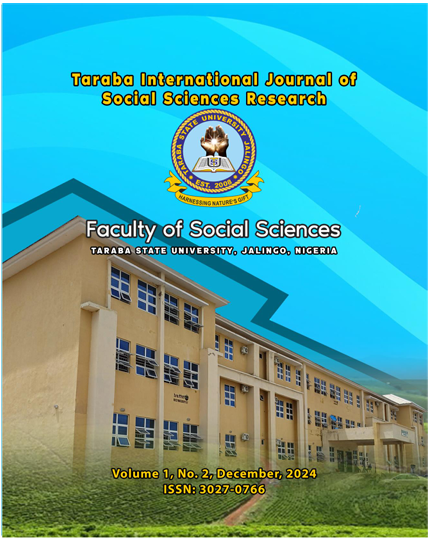ASSESSMENT OF THE CHALLENGES OF CAREER CHOICE AMONG SOME SELECTED SECONDARY SCHOOLS STUDENTS IN TARABA STATE: CASE STUDY OF JALINGO LOCAL GOVERNMENT
Keywords:
Assessments, challenges, career choice, secondary schools StudentsAbstract
This study was carried out to determine and assess the challenges of career choice among school students in secondary schools. This is also evident in universities where peers share experiences and influence one another. A good number of respondents also admitted that men are inclined by nature to be more skillful than women. The factors that had the least consideration included the cultural
background of the respondents influencing their career choice and women generally not performing well technical professions. The study was keen to identify from the respondents if there are careers considered masculine or feminine. Majority (79.9%) stated that it was not so while 20.1% stated that it was so. Majority who stated that there are careers considered feminine and masculine were of the
male gender (68.4%) while the female gender was 31.6%. despite the fact that majority of the female respondents felt that there are no careers considered feminine or masculine, the tabulation of gender and career choice revealed that female respondents were a minority in science, technology, none in engineering and mathematics. According to the findings of the study, all the independent variables investigated had influence on career choice of the sponsored undergraduate students of Compassion International. The study however indicated that role models had the greatest influence with an average mean score of 3.1. Peer and gender factors had an equal influence on the choice of career with an average mean score of 2.3. The results also indicated that family factors have the least influence on career choice with an average mean score of 1.86.

